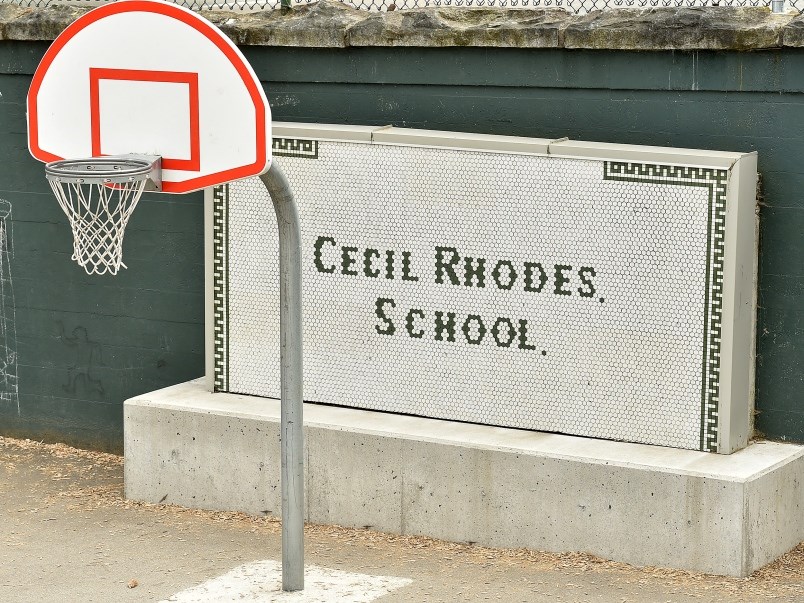When it comes to building new schools, erecting statues or naming creeks and mountains, be careful of the name you choose and how you commemorate the past.
That appears to be the consensus this week after Â鶹´«Ã½Ó³»School Board trustees to remove a plaque honouring 19th century mining magnate Cecil Rhodes, who many say represented the worst of British colonialism.
The plaque had been installed in a basketball court of L’Ecole Bilingue school in 2017 to acknowledge the original school built between 1910 and 1912 near Oak Street and 14th Avenue and known as Cecil Rhodes School until the mid-1970s.
In a hotly debated move, trustees opted to remove the plaque after first covering it up in deference to complaints by people in the community concerned about his anti-black racism.
Here in the Tri-Cities, we don’t have those sorts of complications. Most schools built in the early days have names acknowledging geography or street names rather than historical figures.
But several notable schools do honour important individuals, and for that we can thank the school board of the day.
For example, we have Terry Fox secondary school in Port Coquitlam. Who wouldn’t want to be associated with such a towering Canadian figure as the legendary cancer fighter?
We also have a secondary school named after Dr. Charles Best and a middle school named after Dr. Frederick Banting; these two scientists worked together to discover that insulin could be used to treat diabetes.
And long before the idea of honouring local Indigenous groups with school names became important to recognize the spirit of reconciliation, Kwayhquitlum middle school was named after the local Kwikwetlem First Nation. The school opened in 1994 and the name was used with the permission of the Kwikwetlem. Since the school was named however, pronunciation and spellings for the First Nation changed but the Port Coquitlam school continues to honour its heritage with Coast Salish art and other traditions.
Naming buildings, streets, mountains and other places after important local or historical figures always comes with a risk. For one thing, the name can outlast those who remember the individual, and thus is forgotten when the spark of recognition dies.
Occasionally, however, as in the case of the Cecil Rhodes plaque, commemorating an individual whose actions now seem wrong is likely to cause anger or hurt, not something you want to associate with a school.
In a similar vein, New Westminster removed the statue of judge Matthew Begbie, who was responsible for the hanging of six Tsilhqot'in chiefs, from in front of the courthouse while Victoria removed the statue of John A. MacDonald, Canada’s first prime minister, who was an architect of the hated residential schools. (There is still an elementary school in east Â鶹´«Ã½Ó³»named for Begbie.)
While those men's actions may have been considered appropriate in their time — and that is debatable — they are no longer acceptable given changes in Canadian society, and the knowledge and perspective we now have.
Fortunately, SD43 is well aware of the challenges in naming schools and prefers to consult the community for suggestions rather than issuing orders.
As in all things political, it would seem prudent to first ask the people who will use the facilities for the best name to bestow or recognize. That can’t be done for plaques, names and statues recognizing controversial Canadian historical figures of the past.
In these circumstances, it makes sense to consult with the public to ensure those who were once recognized as leaders, pioneers, heroes or heroines still deserve the honour.



